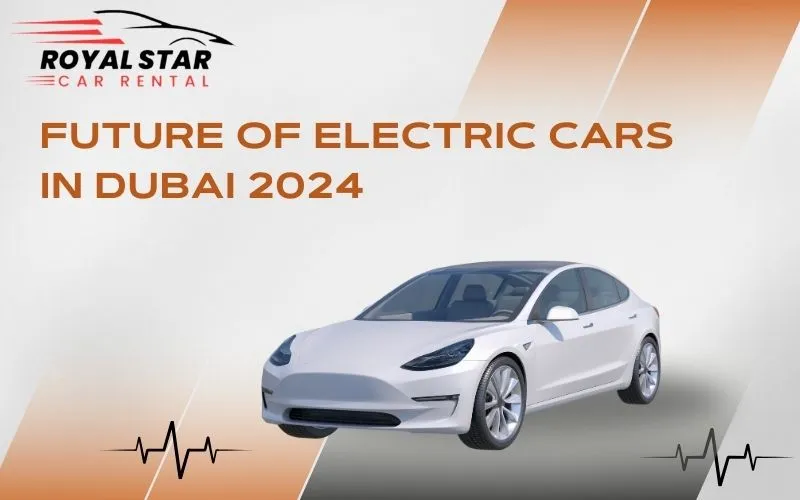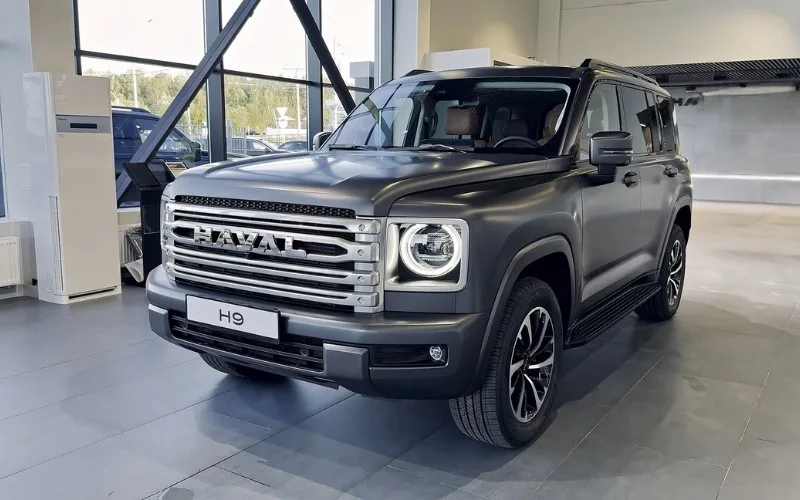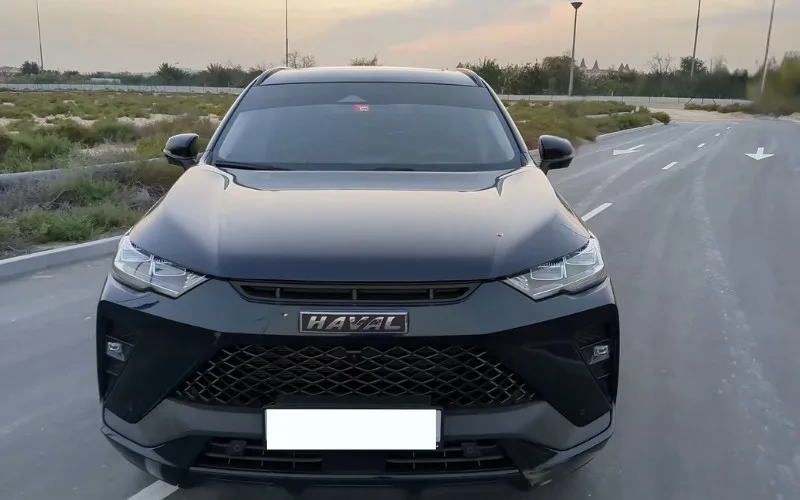Future of Electric Cars in Dubai 2024

Explore Dubai with Future of Electric Cars in Dubai 2024. Book electric car and enjoy your dream ride without deposit. Discover the benefits of Electric cars. Dubai is rapidly advancing in its adoption of electric vehicles (EVs), driven by government initiatives, infrastructure development, and increasing environmental awareness.
1. Government Initiatives and Policies
- Dubai Clean Energy Strategy 2050 aims for 75% of Dubai’s energy to come from clean sources by 2050.
- Dubai Green Mobility Initiative promotes the use of sustainable transport and targets 10% of all new cars to be electric or hybrid by 2030.
- Incentives: DEWA offers free public charging, and there are discounts on vehicle registration fees, toll exemptions, and parking benefits for EV owners.
2. Infrastructure Development
- Charging Stations: Dubai has significantly increased the number of charging stations, with DEWA leading the charge through its “Green Charger” initiative. Over 300 charging stations now exist across the emirate.
- Private Sector Involvement: Companies like Tesla and other car manufacturers also contribute to the expansion of the charging network.
3. Adoption and Market Trends
- Growing Market: An increasing number of EV models are now available in Dubai, ranging from affordable options to high-end luxury cars.
- Corporate Adoption: Many businesses integrate EVs into their fleets to reduce carbon footprints and comply with sustainability goals.
Benefits of Electric Cars in Dubai

- Environmental Benefits
- Reduced Emissions: EVs produce zero tailpipe emissions, which contributes to cleaner air quality and a reduction in greenhouse gases.
- Sustainability: Supports Dubai’s sustainability goals and reduces dependence on fossil fuels.
- Economic Benefits
- Lower Operating Costs: EVs have fewer moving parts than internal combustion engines, which leads to lower maintenance costs. Electricity is also cheaper than petrol.
- Incentives: Free charging, reduced registration fees, and exemptions from tolls and parking fees make EVs financially attractive.
- Technological Advancements
- Innovation: Increased investment in EV technology leads to advancements in battery life, charging speed, and vehicle performance.
- Smart Infrastructure: Integration with smart city initiatives, such as connected traffic systems and renewable energy sources.
Electric Car Charging Stations in Dubai

- DEWA Green Charger Stations
- Locations: You can find them at various strategic locations including shopping malls, airports, residential areas, and public parking spaces.
- Types of Chargers: Fast chargers (DC) and normal chargers (AC) accommodate different charging needs.
- Tesla Superchargers
- Locations: Several high-traffic areas, such as The Dubai Mall, Mall of the Emirates, and key highway locations, feature Tesla Superchargers.
- Benefits: These provide rapid charging for Tesla vehicles, significantly reducing charging time.
- Private and Public Sector Chargers
- Shopping Malls: Many malls offer dedicated EV charging spots.
- Hotels and Resorts: An increasing number of hospitality venues provide charging facilities for guests.
- Residential and Office Buildings
- Installation: Many new residential and commercial buildings are equipped with charging stations, catering to the growing number of EV owners.
The future of electric cars in Dubai looks promising. Strong governmental support, expanding infrastructure, and growing consumer interest drive this positive outlook. The combination of environmental benefits, economic savings, and technological advancements positions Dubai as a leading city in the transition to sustainable mobility.
Challenges Facing Electric Cars in Dubai

- High Initial Cost
- Purchase Price: Electric vehicles (EVs) generally cost more upfront compared to traditional internal combustion engine vehicles. This higher initial cost deters potential buyers, despite the long-term savings on fuel and maintenance.
- Limited Range and Battery Life
- Range Anxiety: Many consumers worry about the limited range of EVs, especially during long-distance travel. Even though newer models have improved ranges, the fear of running out of battery persists.
- Battery Degradation: Over time, EV batteries degrade, leading to reduced range and efficiency. Replacing these batteries can be expensive, adding to the long-term cost of owning an EV.
- Insufficient Charging Infrastructure
- Accessibility: Although Dubai has significantly increased the number of charging stations, they are still not as widespread as petrol stations. Remote areas, in particular, lack sufficient charging infrastructure.
- Charging Speed: While fast chargers are available, they are not yet ubiquitous. Slow charging times at standard chargers inconvenience users accustomed to the quick refueling of petrol cars.
- Limited Model Availability
- Variety: Despite the growing number of EV models, the variety available in Dubai remains limited compared to traditional vehicles. Consumers looking for specific features or price points may find their options constrained.
- Consumer Awareness and Acceptance
- Education: Many potential buyers lack knowledge about the benefits and practicalities of owning an EV. Misconceptions about the performance, maintenance, and overall cost of EVs hinder adoption.
- Cultural Shift: Transitioning from traditional vehicles to EVs requires a significant cultural shift. Drivers need to adapt to new habits, such as planning for charging stops and understanding new technologies.
- Resale Value Uncertainty
- Depreciation: The resale market for EVs is still developing, and there is uncertainty about how well these vehicles will hold their value over time. Concerns about battery life and technological obsolescence impact resale prices.
- Grid Capacity and Energy Sources
- Electricity Demand: A significant increase in EV adoption strains the existing electricity grid. Ensuring the grid can handle the additional load is crucial for a smooth transition.
- Sustainable Energy: To maximize the environmental benefits of EVs, the electricity used to charge them should come from renewable sources. Currently, a substantial portion of electricity in Dubai still comes from fossil fuels.
- Maintenance and Repair Expertise
- Specialized Skills: EVs require specialized knowledge and tools for maintenance and repairs. There is a need for more trained technicians and service centers equipped to handle EV-specific issues.
- Parts Availability: Sourcing parts for EV repairs can be challenging, especially for less common models. This can lead to longer repair times and higher costs.
While Dubai makes significant strides in promoting electric cars, several challenges need addressing to facilitate widespread adoption. Overcoming these obstacles requires continued investment in infrastructure, consumer education, and supportive policies to make EVs a viable and attractive option for all residents.
FAQ’S
1. What initiatives is Dubai taking to promote electric cars?
Dubai promotes electric cars through several initiatives, including the Dubai Clean Energy Strategy 2050 and the Dubai Green Mobility Initiative. These programs aim to increase the adoption of EVs by offering incentives such as free public charging, discounts on vehicle registration fees, toll exemptions, and parking benefits.
2. How many charging stations are available in Dubai?
As of 2024, Dubai has over 300 charging stations. DEWA’s “Green Charger” initiative has developed these stations, which are located at strategic points including shopping malls, airports, residential areas, and public parking spaces.
3. What are the main benefits of owning an electric car in Dubai?
Owning an electric car in Dubai offers several benefits:
- Environmental: EVs produce zero tailpipe emissions, which reduces air pollution and greenhouse gases.
- Economic: EVs have lower operating costs due to cheaper electricity and reduced maintenance requirements.
- Incentives: Financial perks like free charging, reduced registration fees, toll exemptions, and parking benefits make EVs more attractive.
4. What challenges do electric cars face in Dubai?
Electric cars in Dubai face several challenges:
- High Initial Cost: EVs generally cost more upfront compared to traditional cars, which can deter potential buyers.
- Range Anxiety: Many consumers worry about the limited driving range and battery life of EVs, even though newer models have improved ranges.
- Charging Infrastructure: Despite growth, the number of charging stations is still not as extensive as petrol stations, particularly in remote areas.
- Consumer Awareness: Many potential buyers lack knowledge about the benefits and practicalities of EVs, which hinders adoption.
5. Are there any incentives for businesses to adopt electric cars?
Yes, businesses in Dubai receive several incentives for adopting electric cars. These include financial benefits, such as reduced operating costs and various government-provided perks. Additionally, integrating EVs into their fleets helps businesses meet sustainability goals and reduce their carbon footprints.
6. What types of charging stations are available in Dubai?
Dubai offers two main types of charging stations:
- Fast Chargers (DC): These provide rapid charging and are ideal for quick top-ups.
- Normal Chargers (AC): These are more suitable for longer, overnight charging sessions.
7. How is the availability of electric car models in Dubai?
While the variety of EV models in Dubai is growing, it remains limited compared to traditional vehicles. Consumers can find options ranging from affordable models to high-end luxury cars, but the overall selection is still expanding.
8. How does the grid handle the increased electricity demand from EVs?
To handle the increased electricity demand from EVs, Dubai continues to invest in upgrading its grid infrastructure. Ensuring that the grid can support the additional load from a growing number of electric vehicles is crucial for the city’s sustainable mobility plans.
9. Is there support for installing home charging stations in Dubai?
Yes, many new residential buildings in Dubai include charging stations. Homeowners and tenants can also install private chargers, benefiting from the convenience of charging their EVs overnight.
10. What is the future outlook for electric cars in Dubai?
The future outlook for electric cars in Dubai looks promising. Continued government support, expanding infrastructure, and increasing consumer interest drive this positive trend. Dubai is set to become a leading city in the transition to sustainable mobility, with a growing emphasis on electric vehicles.
Conclusion
Royal Star Car Rental offers cars for rent in Dubai without deposit and no any hidden charges. The future of electric cars in Dubai is bright. Significant advancements and initiatives aimed at promoting EV adoption are underway. While challenges exist, ongoing efforts to improve infrastructure, raise awareness, and provide incentives will likely overcome these obstacles, positioning Dubai as a pioneer in sustainable transportation.




